America is indeed a melting pot of cultures, but it also has a linguistic flavor all its own. From fast-paced cities to the open countryside, the United States is home to a multitude of phrases that can leave non-Americans scratching their heads in wonder.
Whether it’s the colorful slang of the streets or the quirky idioms of the heartland, these expressions encapsulate unique cultural nuances. Join us on this linguistic journey as we explore sixteen uniquely American sayings that might just leave you saying, “Huh?”
1. Bite the bullet

“Bite the bullet” is a phrase that might puzzle non-Americans at first glance. It means to face a difficult or unpleasant situation with courage and determination. Historically, this expression is believed to have originated from the practice of having soldiers literally bite down on a bullet during surgical procedures to help endure the pain. In modern usage, it indicates someone is ready to tackle a challenging task head-on. This colloquialism paints a vivid picture of bravery and resilience, qualities often admired in American culture. So next time you’re about to procrastinate, just remember to “bite the bullet!”
2. Break a leg
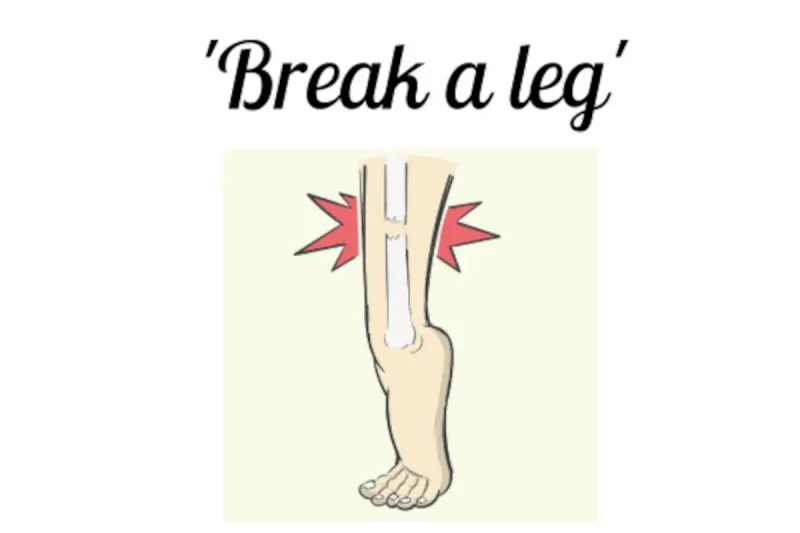
When you hear someone say, “Break a leg,” you might initially think they’re wishing someone harm. However, in the American entertainment world, this phrase is actually a way of wishing someone good luck, especially before a performance. The origins of this saying are steeped in theatrical superstition, where wishing someone good luck was considered bad luck. This phrase is a delightful example of how language can evolve and take on new meanings, serving as a reminder that words often carry deeper, hidden messages. So, if you’re about to take the stage, don’t be alarmed if someone urges you to “break a leg!”
3. Burning the midnight oil

“Burning the midnight oil” is an idiom that resonates with the hardworking ethos many Americans pride themselves on. It refers to working late into the night, often to achieve a deadline or complete a demanding task. The phrase harkens back to a time when lamps were fueled by oil, and staying up late meant burning more oil. Today, it symbolizes dedication and effort, characteristics that are highly valued in American society. Whether it’s for a work project or personal pursuit, “burning the midnight oil” showcases one’s commitment to success. Just remember to balance it with rest!
4. Catch-22

A “Catch-22” is a phrase often used to describe a no-win situation, a dilemma where the solution is inherently contradicted by the problem itself. This term was popularized by Joseph Heller’s novel of the same name, depicting absurd bureaucratic constraints faced by World War II pilots. In contemporary American vernacular, it represents any paradoxical situation where one is trapped by contradictory rules or conditions. It’s a phrase that speaks to the often-complex nature of navigating modern life. When you find yourself in a bind with no apparent way out, you might just be caught in a “Catch-22.”
5. Cold turkey
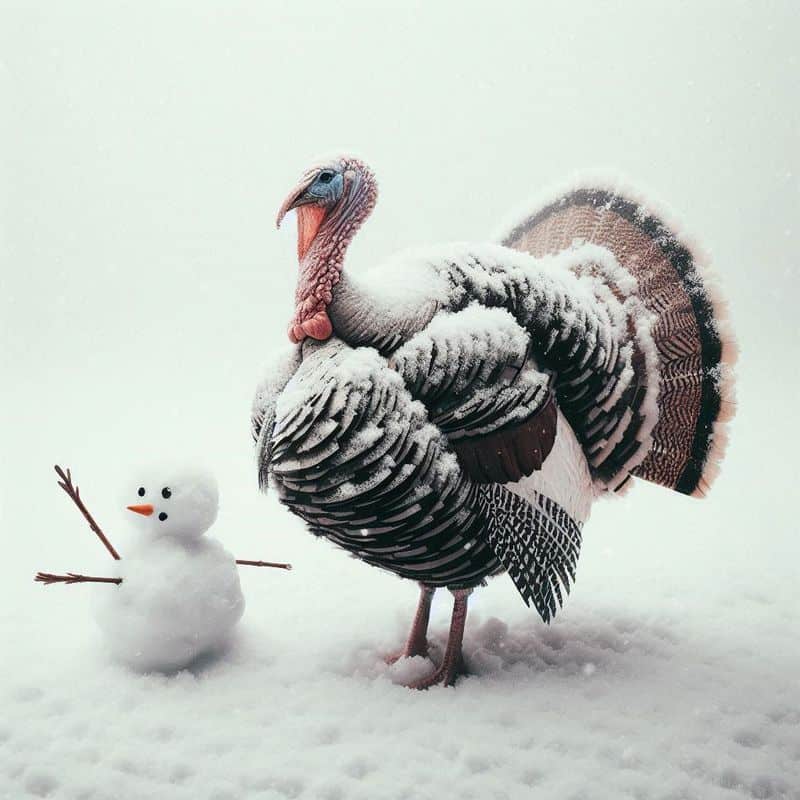
The phrase “cold turkey” might sound like a Thanksgiving dish, but in American slang, it refers to the abrupt cessation of a habit, especially one that is addictive. It’s said to have originated from the cold, clammy appearance akin to uncooked turkey skin, experienced by those undergoing withdrawal. This idiom highlights the challenges and courage required to quit something immediately. It’s often used in discussions about overcoming addictions, whether it’s smoking, alcohol, or any habit-forming behavior. So, if you’re planning on making a significant lifestyle change, going “cold turkey” might just be the bold approach you need.
6. Cut to the chase
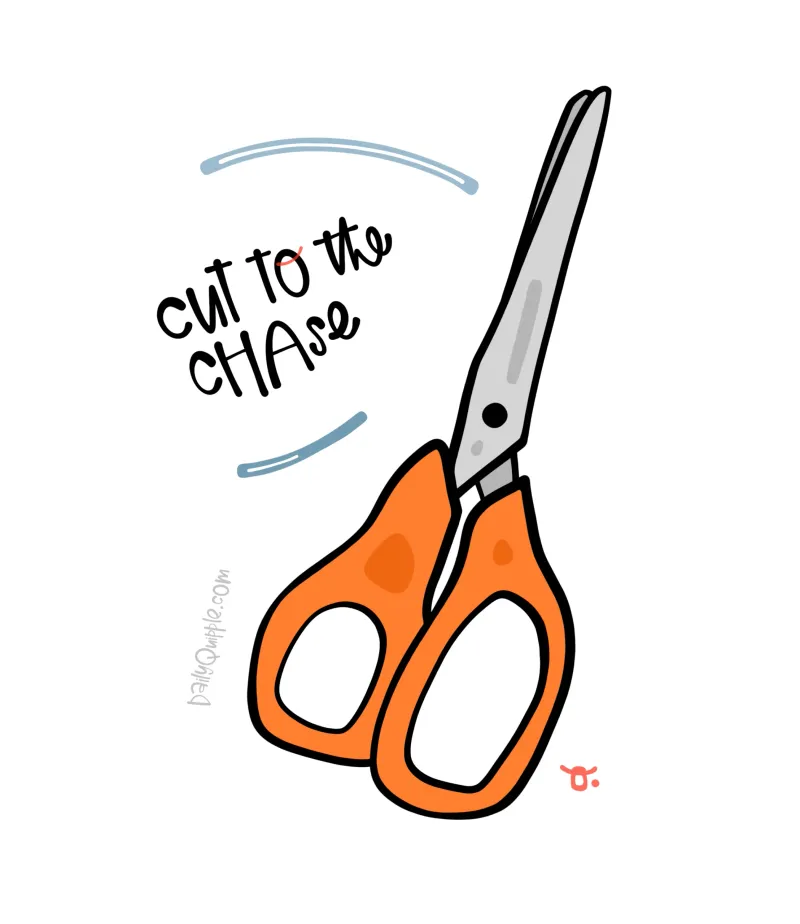
“Cut to the chase” is a phrase with cinematic roots, urging someone to get directly to the point without unnecessary delay. Originating from the silent film era, it referred to the practice of skipping over dialogue to reach the exciting chase scenes. Today, it’s used in everyday American conversation to suggest brevity and focus. It’s especially favored in business and fast-paced environments where time is of the essence. This phrase reflects a straightforward and efficient approach, typical of American communication styles. Next time you’re in a lengthy meeting, maybe it’s time to “cut to the chase.”
7. Kick the bucket
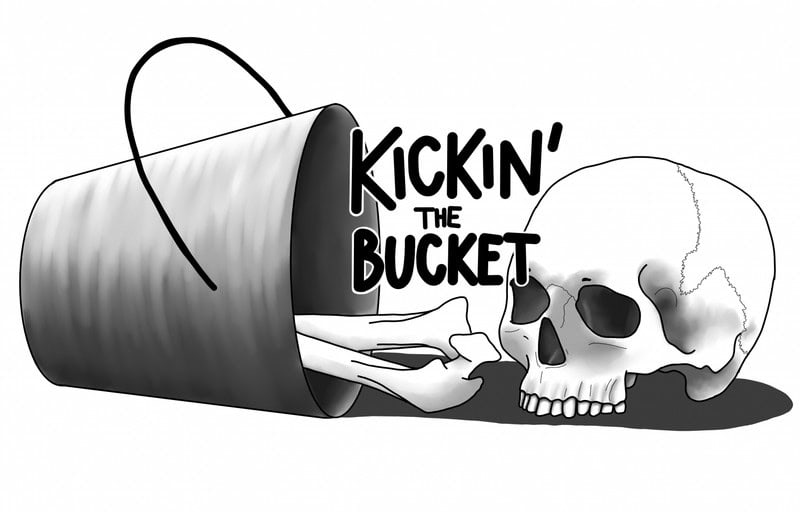
“Kick the bucket” is an American euphemism for dying, and it might leave non-native speakers scratching their heads. Its origins are debated, with some attributing it to the hanging of buckets in slaughterhouses. Despite its morbid literal imagery, it’s often used in a lighthearted or irreverent context. This phrase illustrates how language can soften the harsh realities of life and death. In everyday conversation, it allows people to discuss mortality with a touch of humor. So, while it might seem odd, “kick the bucket” is a testament to the quirky ways Americans approach serious topics.
8. Piece of cake

“Piece of cake” is an expression that might make you hungry, but in American slang, it means something is very easy to do. Its origins are uncertain, but it likely derives from the straightforward enjoyment of eating a delicious slice of cake. This phrase is used to describe tasks or challenges that require minimal effort or skill, epitomizing the American preference for simplicity and ease. Whether you’re conquering a simple test or completing a routine task, declaring it a “piece of cake” conveys confidence in one’s abilities. It’s a sweet reminder that not everything in life has to be complicated.
9. Raining cats and dogs
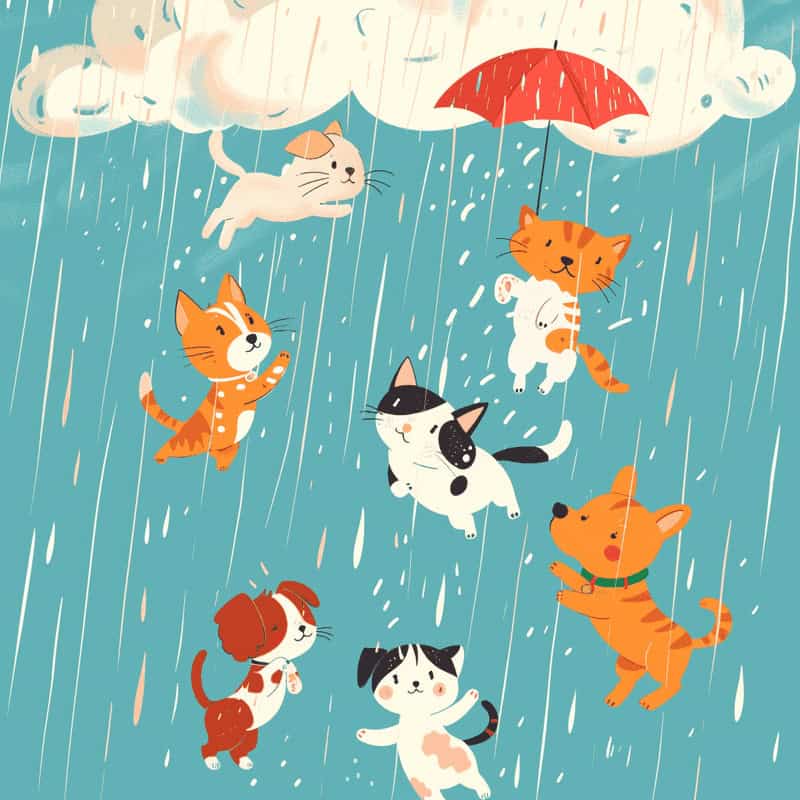
The phrase “raining cats and dogs” is a whimsical way to describe heavy rainfall, and it’s one that may puzzle those unfamiliar with American idioms. The origins of this saying are unclear, though it likely derives from ancient myths and legends. In modern usage, it’s a vivid and playful metaphor for a torrential downpour. This expression encapsulates the creative and imaginative aspects of American English, turning ordinary weather into an amusing image. Whether you’re caught in a sudden storm or simply discussing the weather, describing it as “raining cats and dogs” adds a delightful touch of humor.
10. Read between the lines

To “read between the lines” is to discern hidden meanings or intentions that aren’t explicitly stated. This phrase is a staple in American communication, encouraging deeper analysis and understanding. Its origins lie in the practice of cryptic messaging, where real meanings were concealed within the text. Today, it suggests looking beyond the surface to grasp underlying truths. In a world filled with subtleties and nuances, this idiom underscores the importance of insight and perception. Whether navigating personal relationships or professional settings, the ability to “read between the lines” can provide valuable clarity and comprehension.
11. Shoot the breeze
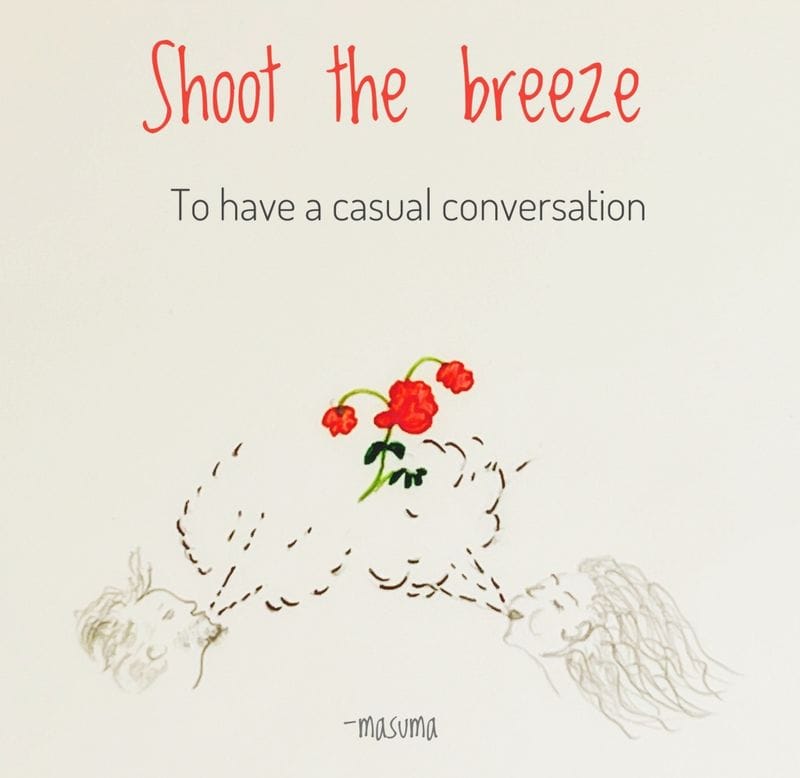
“Shoot the breeze” is a charming American expression for engaging in casual, light-hearted conversation. It conveys a sense of relaxation and ease, often associated with leisurely chats among friends. The origins of this phrase are somewhat obscure, but it beautifully captures the essence of informal communication. In an increasingly digital world, “shooting the breeze” reminds us of the joy found in face-to-face interactions. This idiom emphasizes the value of connection and the simple pleasure of sharing thoughts and stories. Whether catching up with an old friend or meeting someone new, taking time to “shoot the breeze” is always rewarding.
12. Spill the beans

“Spill the beans” means to reveal a secret or disclose information that was meant to be kept private. This lively phrase is often used in playful or dramatic contexts. Its origins are debated, with some tracing it back to secret ballots involving beans in ancient Greece. In today’s American vernacular, it serves as a metaphor for unintentionally or deliberately sharing confidential details. This idiom highlights the dynamics of trust and discretion in communication. Whether in personal relationships or professional settings, deciding when to “spill the beans” requires careful consideration of timing and impact.
13. The whole nine yards
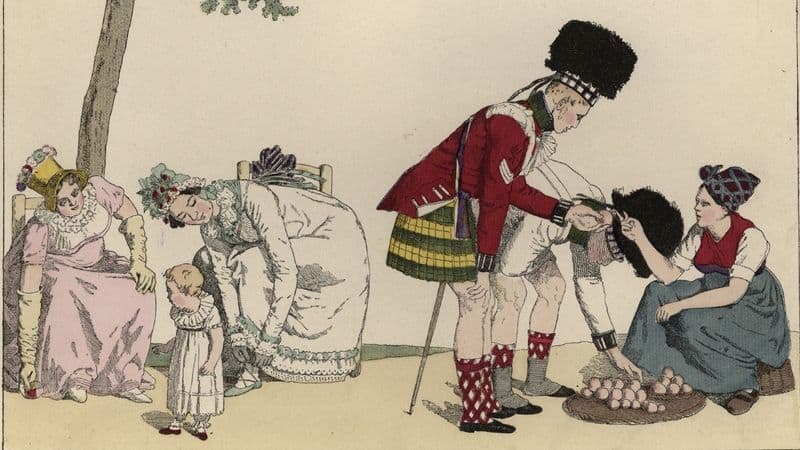
“The whole nine yards” is a phrase used to indicate going all-out or making a complete effort. Its origins are unclear, though many theories abound, from military references to fabric measurements. In American culture, it embodies the spirit of giving one’s best and ensuring nothing is left undone. This idiom is frequently employed in situations where dedication and thoroughness are paramount. Whether tackling a complex project or pursuing a personal goal, striving for “the whole nine yards” reflects commitment and perseverance. It’s a motivational reminder to push boundaries and strive for excellence in all endeavors.
14. Under the weather

“Under the weather” is a gentle way of expressing that one is feeling unwell or slightly sick. It’s an idiom that evokes a sense of empathy and understanding, often used to describe minor ailments or fatigue. The phrase’s nautical origins relate to sailors feeling ill due to adverse weather conditions at sea. In modern American usage, it serves as a considerate and polite way to acknowledge someone’s discomfort. Whether dealing with a cold or a headache, saying you’re “under the weather” communicates vulnerability without dramatizing the situation. It’s a comforting phrase that invites support and compassion.
15. Up in the air

When something is “up in the air,” it means the outcome is uncertain or undecided. This phrase conveys a sense of suspense or pending resolution, often used in discussions involving plans or decisions. Its origins are somewhat mysterious, but it paints a vivid picture of something hovering, yet to be settled. In American communication, this idiom captures the complexities and unpredictabilities of life. Whether dealing with business negotiations or personal choices, acknowledging that things are “up in the air” reflects adaptability and patience. It’s a reminder that sometimes, clarity and resolution are just around the corner.
16. Wildcard
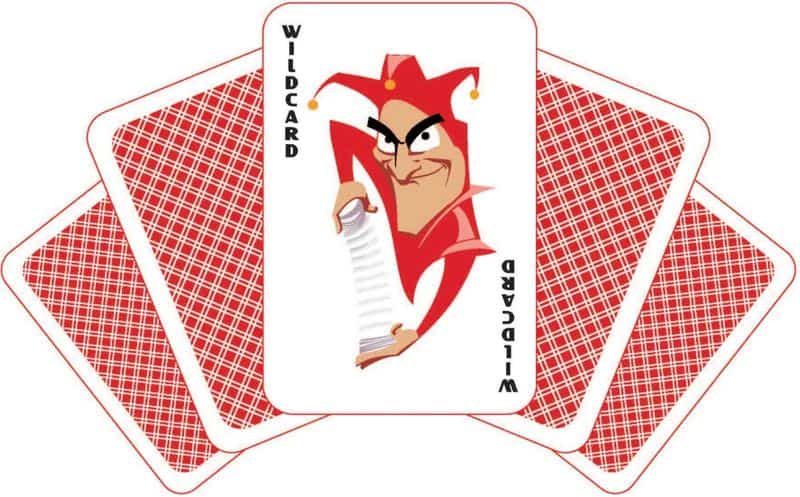
In American slang, a “wildcard” refers to an unpredictable or unconventional person or element that can change the course of events. This term is borrowed from card games, where a wildcard can represent any card, adding an element of surprise. In everyday language, it signifies the unknown or unexpected, often with a hint of excitement or caution. Embracing the “wildcard” aspect of life means being prepared for unexpected changes and opportunities. It encourages flexibility and openness to different possibilities, reminding us that not everything can be planned or predicted. Life’s “wildcards” often lead to the most memorable experiences.

Well, hello there!
My name is Jennifer. Besides being an orthodontist, I am a mother to 3 playful boys. In this motherhood journey, I can say I will never know everything. That’s why I always strive to read a lot, and that’s why I started writing about all the smithereens I came across so that you can have everything in one place! Enjoy and stay positive; you’ve got this!

